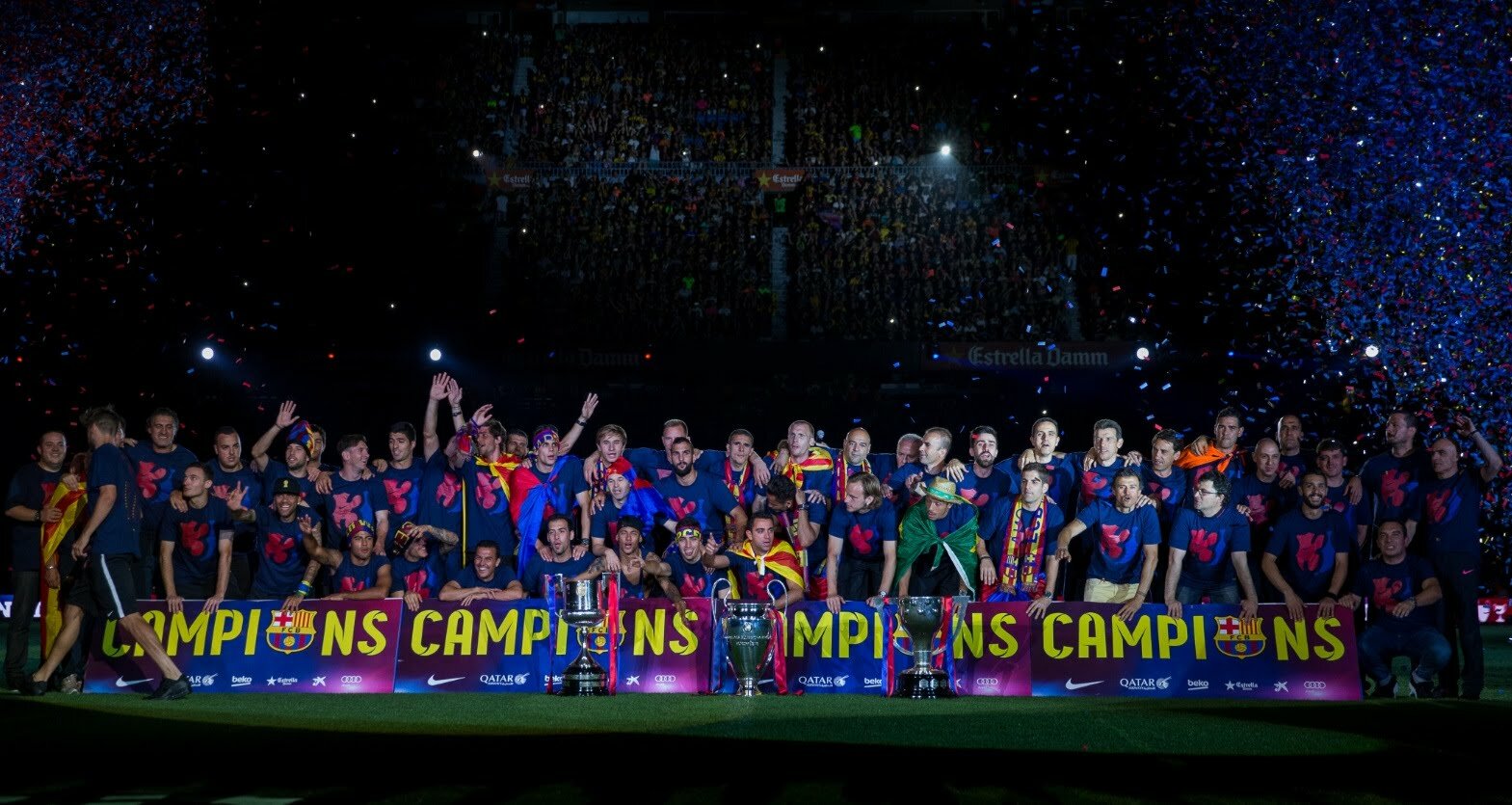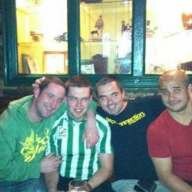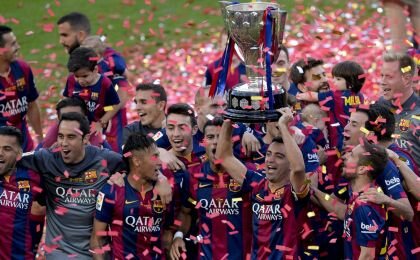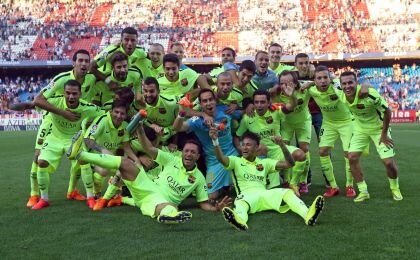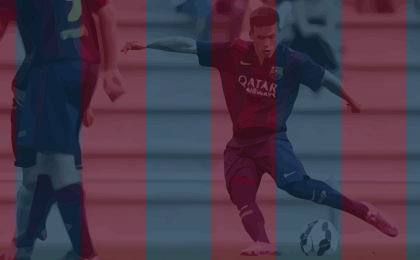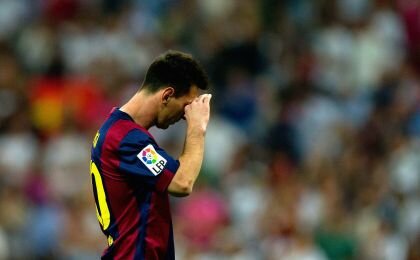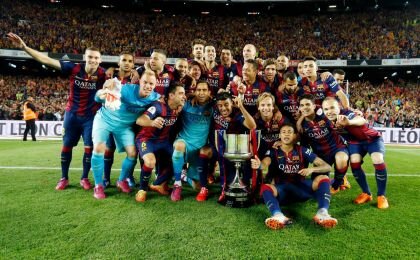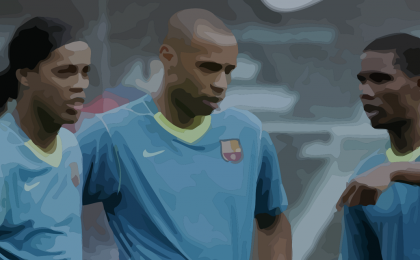 analysis | 2015-07-21
analysis | 2015-07-21
The recipe of success - The definitive analysis of a historical season
Near the end of March we were attempting to uncover the relationship between the playing style of Luis Enrique’s Barça and the results on the pitch. Three months later and with all the competitions the team played were won in a historical second treble, now is the ideal moment to complete that analysis.
Luis Enrique’s tactical roadmap transformed the old Barça that belonged to its midfielders into a new team that played to the tune of its forwards, with Messi holding the command with supreme authority. They abandoned the idea of controlling the game and maintaining order through ball possession in favor of a more open and box-to-box play – spontaneously generating space that allowed the three forwards, and especially Messi, to show off their talents and decide the outcome of matches.
The team would win (the vast majority of the time) or they would lose (very rarely), but they hardly tied, the reason being that this new approach simply wasn’t conducive to it. Barça’s play was in some ways reminiscent of a boxer who plants his feet and slugs it out with his opponent in center ring – with much more finesse, of course. Perhaps the league clash with Athletic Bilbao at the New San Mamés was the paradigmatic example of this rock-and-roll, trading-blows playing style.
When both the results and the general impressions suggested Barcelona had found their road to competitiveness in this vertigo-inducing play, they added that last drop they needed to go from being merely a tough opponent to a devourer of silverware. And it consisted in being able to sporadically invoke the Barcelona of the Midfielders and dominate in positional attack. Dani Alves was a key figure in this evolution, playing as a faux-center midfielder and being Messi’s greatest ally in the short-passing game while at the same time supporting Busquets in the high pressing by playing behind the ball.
We got to see this during the first half in Sevilla, and despite a lackluster second half and the difficulties Valencia caused in their visit to the Camp Nou, the idea consolidated with lopsided wins in the league (0-2 over Espanyol, 6-0 over Getafe, and 0-8 against Córdoba) and with a brilliant quarterfinals performance against PSG in the Champions League: 1-3 in Paris and 2-0 in the Camp Nou. But beyond the scoreline the impression was that of a team that knew what they were doing, that was capable of showing multiple variants in different phases of the game and be successful in all of them, that made Xavi and Iniesta recover some of their former sheen, and that was led by a Lionel Messi playing his best football.
Despite the undeniable effect injuries had on Bayern's competitiveness, Barça dispatched the German team in such a convincing fashion that some started to view the treble as possible, while the boldest fans started to believe it was inevitable. The home tie was marked by a colossal performance by Leo Messi, who practically destroyed Pep Guardiola’s plans on his own, while in the away game in Munich we got to see a more sober Barcelona punch its ticket to potential glory: overcoming an early goal by Bayern with ease, flipping the score before halftime, and allowing the Bavarians to recover some of their dignity late when Luis Enrique’s substitutions made it clear the game was over.
The only thing left to do was to take the last few steps to cross the finish line: winning the league against the reigning champions, away from home, and with Luis Suárez in the infirmary. The game was almost placid, with Barcelona taking it home with relative ease despite the narrow scoreline suggesting the opposite. Then came the cup with what, given the context, may be the best goal in Lionel Messi's career.
And to top it all off, the Champions League final. The game wasn’t as easy as the optimists predicted – a Champions League final never is, and less so against an Italian team – but there was never much risk of things going south despite Juventus’ push in some segments of the game. Barça came out firing, with Messi making the play of the season in a beautiful pre-assist by crossing the ball from right to left to Jordi Alba who played it on, eventually setting up Rakitic’s opener. After opening the scoring they continued to threaten Buffon and were denied a likely penalty shortly later. In the second half Morata equalized and some hesitancy let Juventus back into the game, but Gerard Piqué put on a display closing down all their efforts and giving Barça a much needed tranquility to get ahead again via Luis Suárez and close out the match in the last minute with a counterattack goal from Neymar. Despite being a competitive match, the general vibe was that the only thing that kept it from being a one-sided romp was the Blaugrana’s lack of precision before the goal.
The final figures are spectacular:
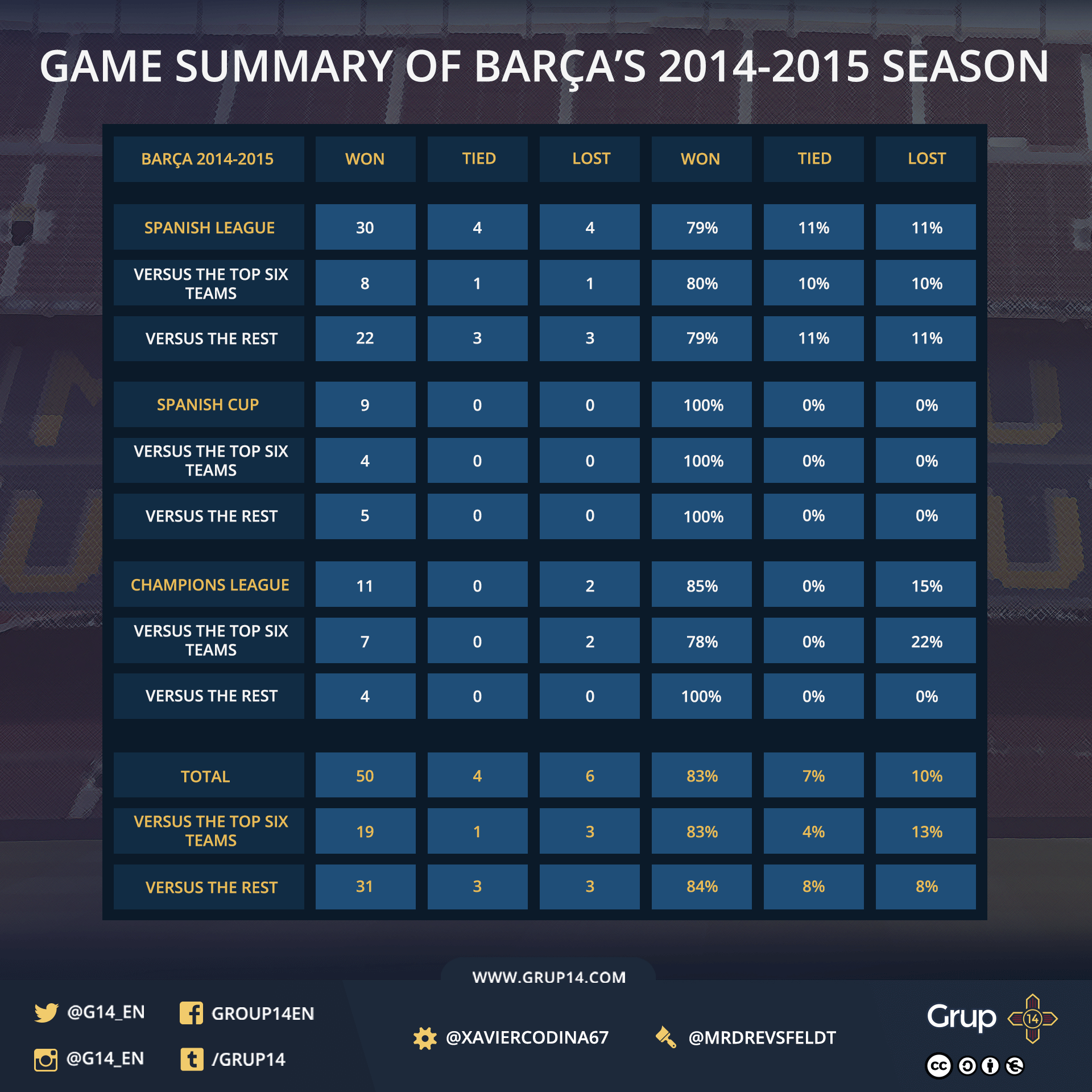
Luis Enrique’s Barça said goodbye to the 2014-2015 season having won 50 out of 60 matches played. That works out to an 83-percent victory ratio including elite opponents, a significant difference from Guardiola's 75 percent in the 2010-2011 season, with a 70 percent win ratio against other elite teams. Only four draws, of which one came on the last day of the league season after the title had already been clinched and when the team cared little about the result. And only six defeats, of which two came against elite opponents in the first months of the season when the project was still in its infancy and had no cohesion, and one against Bayern when the game was, for all intents and purposes, over and Barça had already secured their spot in the final. This is the only area in which Guardiola’s team obtained better results, losing only three games in the entire year. Pep achieved this with an almost manic obsession for minimizing all risks using control football, but at the expense of significantly more tied games (12, versus only four this season).
Only Guardiola and Tito had better results in the league, while Luis Enrique’s team played a statistically perfect domestic cup, winning every single game. In the European competition the deed was equally impressive, bringing home what is likely the most difficult trophy in the history of the competition by beating Manchester City, Paris Saint Germain, Bayern Munich, and Juventus in succession, the champions of Europe’s four biggest leagues, and all by at least a two-goal margin.
No one could envision a better way to engrave this team’s name into football history than winning a second treble, including the fourth out of the last 10 Champions Leagues; to consolidate Leo Messi in the footballing pantheon, and to bid farewell to Xavi Hernández, who has become a symbol of everything that Barça signifies. Tenacity and love for one’s club in the bad moments, and excellence on the pitch and off it in the good ones. Xavi leaves with a collection of silverware that puts him in the company of all-time icons, but he leaves behind his legacy and a squad that will continue to compete and hopefully bring us many more moments of happiness on the backs of Messi, Suárez, Neymar, Busquets, Piqué, and all the rest of them. He’ll be cheering them on from afar, and few doubt that his great friend Andrés Iniesta will soon catch up to him.
Article originally published in Spanish on the Perarnau Magazine.


